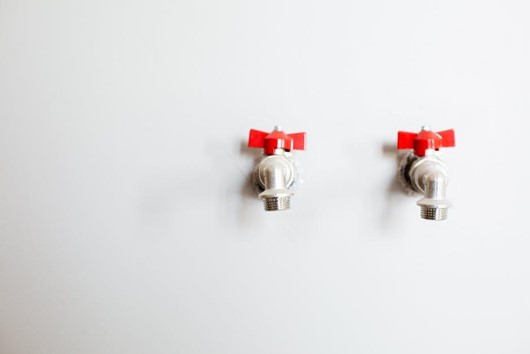DIY plumbing projects might seem like a cost-effective way to tackle household repairs, but they often come with hidden risks that can lead to expensive consequences. Whether you’re fixing a leaky faucet or attempting to install a new sink, the allure of saving money can quickly turn into a nightmare if things go wrong.
Improper techniques, lack of experience, and overlooked safety measures can all result in water damage, mold growth, and even structural issues in your home. Before diving into your next plumbing endeavor, know how these potential hazards could turn a simple job into a complex and costly ordeal.
Water Damage
One of the most common issues stemming from DIY plumbing projects is water damage. Misaligned pipes, over-tightened connections, or unsecured joints can cause leaks that lead to extensive water damage over time. Aside from affecting the area surrounding the initial repair, it can also compromise the structural integrity of your home. With their expertise and specialized tools, a professional plumber like Cole Pepper Plumbing can ensure that all connections are secure and that installations adhere to local building codes. By consulting a plumber from the outset, you mitigate the risk of water damage and avoid the potentially immense costs associated with repairs, mold remediation, and structural restoration.
Mold Growth
Even small leaks that go unnoticed can create the perfect environment for mold to flourish. Mold spores thrive in damp, dark areas, which makes hidden leaks behind walls and under floors particularly hazardous. Once mold begins to grow, it can spread rapidly and become difficult and costly to eradicate.
Mold exposure poses health risks, including respiratory issues and allergic reactions, and can exacerbate existing conditions like asthma. DIY plumbing projects that result in leaks, whether visible or hidden, can quickly escalate to mold issues if not addressed promptly and properly.
Injuries and Safety Hazards
Plumbing repairs often require the use of specialized tools and equipment. Without proper training, handling these tools can increase the risk of injury or cause damage to your property. In addition, working with plumbing pipes and fixtures involves exposure to hazardous materials such as lead, asbestos, and sewage. Proper safety measures must be taken to protect yourself from potential health hazards.
A professional plumber has the necessary experience and knowledge to handle these materials safely and effectively. They also carry liability insurance in case of accidents, giving you peace of mind and protecting you from potential legal and financial repercussions.
Structural Issues
Structural issues can also arise from misguided DIY plumbing projects. Incorrect installation or repair work can compromise the stability of walls, floors, and other structures. For instance, cutting into a load-bearing wall to access plumbing pipes improperly can weaken the structural integrity of your home. Water leaks can seep into foundations and cause significant damage over time, leading to uneven floors, cracked walls, and even potential collapse in extreme cases.
Relying on a professional plumber ensures that all structural considerations are addressed, and appropriate measures are taken to protect the integrity of your home. Professionals understand the importance of following building codes and regulations so that any necessary permits are obtained before commencing work.
Failed Inspections
Another hidden danger of DIY plumbing projects is the risk of failing inspections. When attempting to tackle a plumbing job on your own, you may not be aware of all the necessary steps and regulations required for proper installation or repair. This can result in a failed inspection, which could delay your project and cost you additional time and money to fix any issues.
Hiring a professional plumber ensures that your project will meet all necessary codes and regulations while saving you the hassle of dealing with failed inspections. Know that DIY plumbing projects are not just about saving money, but also about ensuring the safety and well-being of your household.
Inadequate Water Pressure
Incorrectly installed pipes or fixtures, clogs, and improperly adjusted pressure regulators can all contribute to a lack of sufficient water pressure in your home. Low water pressure can be more than just a minor annoyance—it can also signal more significant underlying issues such as blockages or leaks within your plumbing system.
Professional plumbers are equipped to diagnose and address the root causes of inadequate water pressure. They can detect hidden problems that might not be immediately obvious to a layperson so that your home’s plumbing system functions efficiently. Thanks to professionals, you can avoid the frustration and inconvenience of insufficient water pressure, while also preventing potential long-term damage to your plumbing infrastructure.

While DIY plumbing projects might offer a sense of accomplishment and the promise of savings, the potential risks and hidden dangers often outweigh the benefits. From water damage and mold growth to safety hazards and structural issues, these challenges can turn what seems like a simple repair into a costly and complex problem.
A licensed plumber brings expertise, specialized tools, and a comprehensive understanding of building codes and regulations. By enlisting their services, you will safeguard your property and gain peace of mind knowing the job is done correctly the first time.

